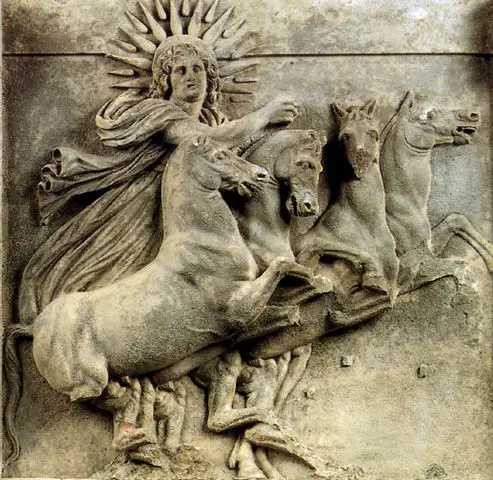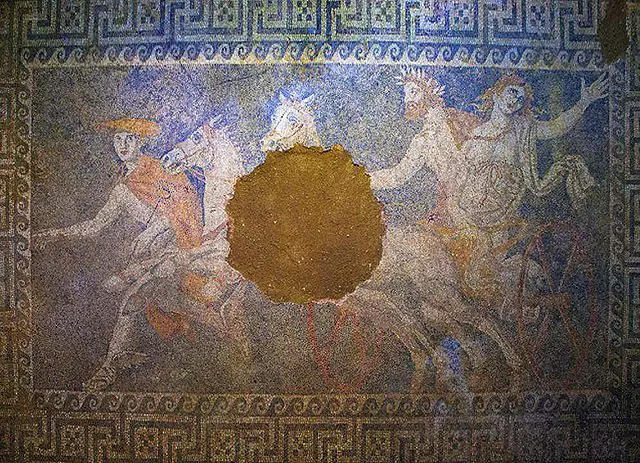| Further Reading | The 5 Roman Emperors Of The Julio-Claudian Dynasty |
Classical Greece existed long before the Roman Empire. When Greece was finally conquered by the expanding Roman Republic in 146 BC Rome began to copy and adapt nearly all of Greek culture. For the remainder of the Roman Republic and Empire Greek culture became the standard Roman culture for one major reason.
The Romans began to copy Greek culture because of the desire of the Roman elite to emulate an older Greek culture to separate themselves from the Latin and Italian tribes which surrounded them. This is a recurring theme in Roman history where the Romans believed themselves to be descendants from ancient Ionian Trojans, thus they copied their perceived ancient culture.
If you lived during the time of the late Roman Republic and early Roman Empire you would have discovered a lost culture. The Romans believed that this was their ancient culture and thus began to fuse their culture with Greek. This created the modern Roman culture that we recognize today.
Here at The History Ace I strive to publish the best history articles on the internet. If at the end you enjoyed this article then consider subscribing to the free newsletter and sharing around the internet.
Without further ado, here is an article explaining why the Romans copied the Greeks.
The Elite Of Roman Society Demonstrated A Need To Differentiate Themselves From The Latin And Italian Tribes
During the late Roman Republic the elite of Rome began to seek ways to differentiate themselves from their Italian and Latin neighbors/allies.
One of the easiest ways to do this was by claiming that Rome was not Italian or Latin but rather it was Trojan. This was because the foundational myth of Rome stated that the culture of Rome was in fact Trojan. This more than likely was not true, but the important part is that the Roman population believed this.
The reason the Roman population believed this was because it gave them justification for Rome’s domination over their Italian and Latin allies. Historians know that during the initial parts of the late Roman Republic this cultural difference created significant strife in Italy.
In 122 BC the Roman Tribune of the Plebs, Gaius Gracchus, proposed a law that would give Latins Roman citizenship and the rest of Italy the current rights of the Latins. If the Romans saw themselves as Latins this would have not been a problem. However, instead of giving the Latins citizenship the entirety of the Roman population revolted against Gaius Gracchus and his proposed laws.
This demonstrated a firm belief that the Romans believed themselves to be different from the Latins and Italians.
Later on in the early Empire Virgil would write a monumental piece of literature called the Aeneid which tells the story of Aeneas. In this story Aeneas flees the burning of the city of Troy and travels around the Mediterranean before founding the Roman state.
As such, there was a need for the Roman elite to distinguish themselves as different from the Latins and Italians culturally. Greek culture became a perfect way to do this.
The Romans Copying The Greek Culture To Establish Cultural Hegemony
When the late Roman Republic fell and the Roman Empire started in 27 BC the first Roman Emperor Augustus first had to establish his authority to rule.
This was done through a cultural explosion across Rome. Augustus and other Roman elite would begin a radical cultural propaganda campaign. Famous buildings such as the Roman Pantheon would be built during this time.
However, the real influence of Greek culture can be seen in the explosion in Roman literature which happened at the same time as the reign of Augustus. From 27 BC up through the death of Augustus the Roman world saw huge literary writers such as Virgil, Livy, Horace, and Ovid write their masterpieces.
All of these works of art take Greek philosophy and literature and combine them to create a new Roman culture. One that sought to explain why Rome came to dominate the known world and the future of Rome under the reign of Augustus.
We can see a direct example of this in how the populus Romanus of Rome would have responded to the the shield of Aeneas. In Virgil’s Aeneid Aeneas is given a shield by the Greceo-Roman god Venus. On this shield is an inscription which outlines the famous city of Rome from Aeneas’s time up through the time of Augustus.
This story would have been read out to a crowd of Romans who would have recognized that their past and future was part of Greek history. Because of this Rome began to establish a cultural hegemony across the Mediterranean by fusing Greek culture with Roman values.
Conclusion
In essence the reason that the Romans copied Greek culture was because they desired a way to differentiate themselves from the other Latins and Italians that surrounded them. Greek culture gave the Romans a reason for their cultural hegemony across the Mediterranean. On top of that it helped to bolster the new Augustan regime during the early Empire.
Roman culture is a fascinating subject of discussion. Not much survives from the early and middle Roman Republican periods so it’s hard to discern early Roman culture. However, what is known is that from the 2nd century BC up to the end of the Empire Rome began a cultural assimilation of ancient Greece.
Here at The History Ace I strive to publish the best history articles on the internet. If you enjoyed this article then consider subscribing to the free newsletter and sharing around the internet.
Further, you can check out some of the other articles below.
-
How The American Revolution Changed The World

Here is how the American Revolution changed the world. Many people are not aware of just how important this event actually was.
-
Why The Roman People Loved Chariot Racing

Why did the Roman people love chariot racing? Well it all comes down to these 3 reasons.
-
The Design and Color of Roman Chariots

What was the design and color of Roman Chariots? Were they faster or slower then normal chariots? Well here is everything!
Sincerely,
Nick